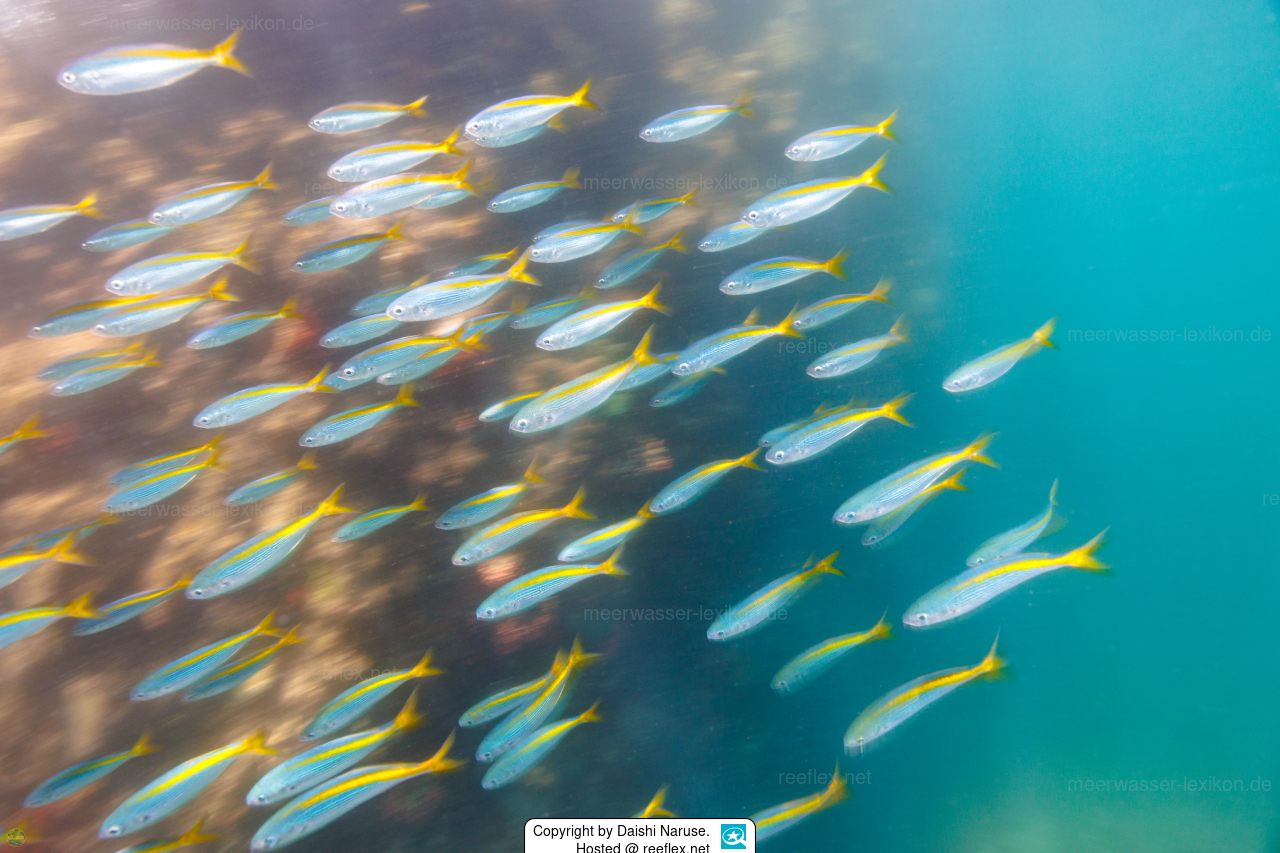Info
Labracoglossa argenteiventris Peters, 1866
Labracoglossa argenteiventris is a tax perch endemic to Japanese waters.The perch resides in the midwater of rocky reefs where it forms large schools.
In Japan, the perch is displayed in large show aquariums.Labracoglossa argenteiventris parasitized by the isopod Ceratothoa arimae.
Woodlice of the genus Ceratothoa (Cymothoidae) are among the largest invertebrates that parasitize on a wide variety of fish, including commercially important species. However, the effects of parasites on fish body condition have only been studied in a few Ceratothoa species, particularly those living in the Mediterranean Sea and Australian waters. The results of these earlier studies suggest the hypothesis that the effects of parasitism by Ceratothoa species on the condition of native hosts in the wild are harmless.
To test this hypothesis on a different Ceratothoa-fish relationship in a different region, the effects of Ceratothoa arimae on the body condition of the yellow-striped butterfish Labracoglossa argenteiventris, a commercial fish important to local fisheries in Japan, were studied.
In particular, on the remote islands off Tokyo, Japan. Ceratothoa arimae was found in 8 of 23 fish examined.Although infected and uninfected fish had similar standard length, the body condition index (relative weight) of infected fish was significantly lower than that of uninfected fish.
The observed weight of infected fish averaged 89.2% of the expected weight. These results are not consistent with the above hypothesis and suggest that the potential impact of Ceratothoa parasites needs to be carefully considered in the fishery management plan for host fish.
Synonym: Labracoglossa argentiventris Peters, 1866.
Labracoglossa argenteiventris is a tax perch endemic to Japanese waters.The perch resides in the midwater of rocky reefs where it forms large schools.
In Japan, the perch is displayed in large show aquariums.Labracoglossa argenteiventris parasitized by the isopod Ceratothoa arimae.
Woodlice of the genus Ceratothoa (Cymothoidae) are among the largest invertebrates that parasitize on a wide variety of fish, including commercially important species. However, the effects of parasites on fish body condition have only been studied in a few Ceratothoa species, particularly those living in the Mediterranean Sea and Australian waters. The results of these earlier studies suggest the hypothesis that the effects of parasitism by Ceratothoa species on the condition of native hosts in the wild are harmless.
To test this hypothesis on a different Ceratothoa-fish relationship in a different region, the effects of Ceratothoa arimae on the body condition of the yellow-striped butterfish Labracoglossa argenteiventris, a commercial fish important to local fisheries in Japan, were studied.
In particular, on the remote islands off Tokyo, Japan. Ceratothoa arimae was found in 8 of 23 fish examined.Although infected and uninfected fish had similar standard length, the body condition index (relative weight) of infected fish was significantly lower than that of uninfected fish.
The observed weight of infected fish averaged 89.2% of the expected weight. These results are not consistent with the above hypothesis and suggest that the potential impact of Ceratothoa parasites needs to be carefully considered in the fishery management plan for host fish.
Synonym: Labracoglossa argentiventris Peters, 1866.







 Daishi Naruse, Japan
Daishi Naruse, Japan


